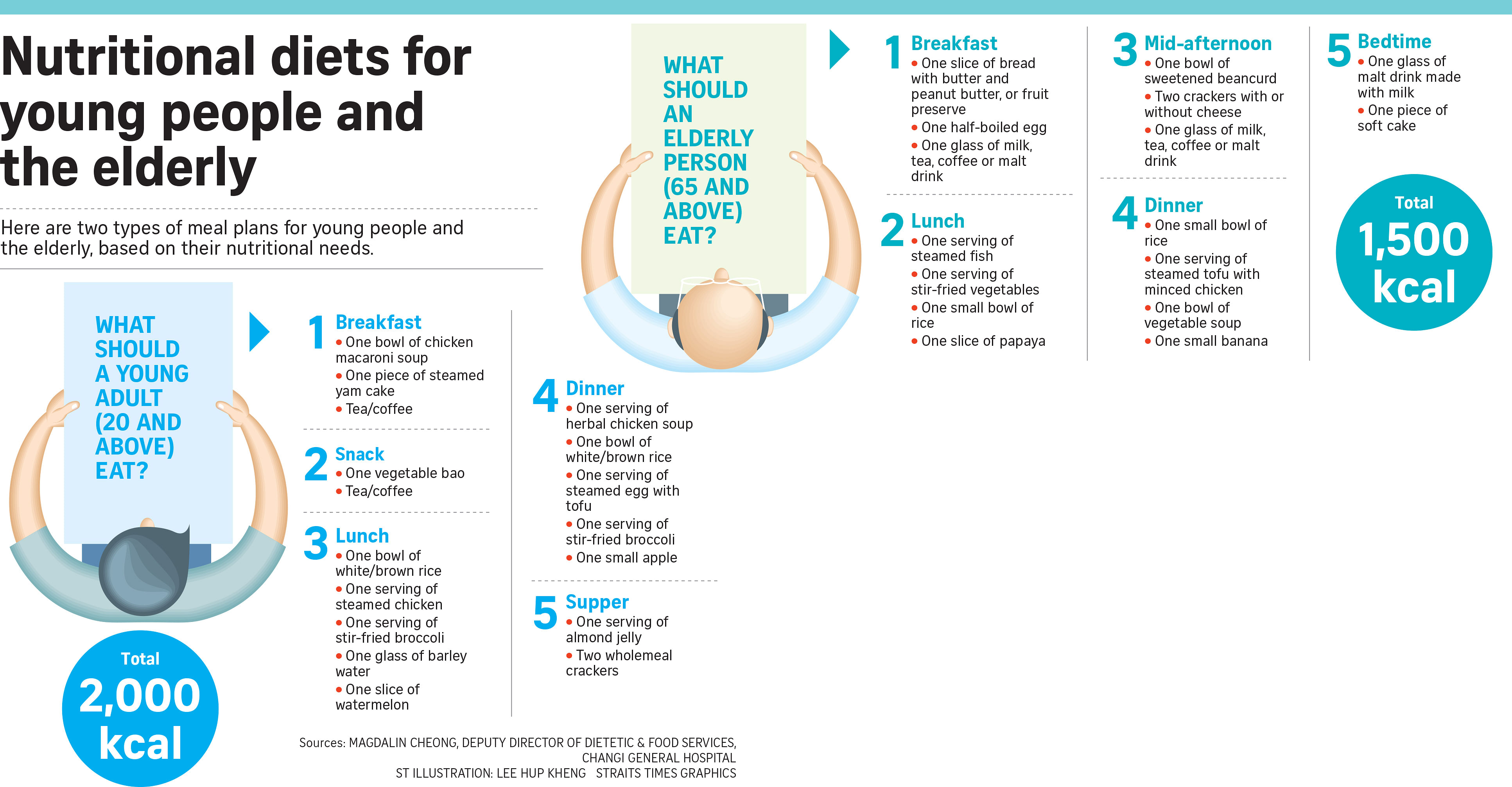Four in five Singaporeans aged 65 and above who do not eat enough protein are at risk of malnutrition and have low muscle mass, making them prone to injury and falls.
Researchers found that nutritional supplements, which include a chemical used for bodybuilding, can improve their muscle mass and strength.
Combined with dietary consultation, it can lead to enhanced physical function, specifically increased leg strength and hand grip, researchers from Changi General Hospital (CGH), SingHealth Polyclinics and healthcare company Abbott said.
"Protein needs increase with age, and muscle protein synthesis can be more effective with the addition of regular and moderate exercise," said Adjunct Associate Professor Samuel Chew on Thursday of the Strengthening Health In Elderly Through Nutrition (Shield) study.
Prof Chew, the principal investigator of the study and senior consultant (geriatric medicine) at CGH, added: "Given Singapore's ageing population and the results from this Shield study, CGH will work to reverse the effects of malnutrition by developing interventions in collaboration with our partners, so our older Singaporeans can continue to live healthy and active lives at home and in the community."
The study, recently published in Clinical Nutrition, had examined the role dietary counselling and nutritional supplements can play in reducing the risk of malnutrition, which affects one in three older adults here.
It is the second phase of research from 2017 which showed that one in five Singaporeans above 65 had low muscle mass, an indicator of poor health in the elderly.
In the latest study, the researchers provided 811 elderly participants at risk of malnutrition with dietary guidance. From the group, it provided 405 patients with two servings of beta-hydroxy-beta-methylbutyrate (HMB) per day as well.
HMB, a chemical frequently used for bodybuilding, is said to improve muscle strength by reducing protein breakdown. It is sometimes added to medical foods for patients with muscle wasting.
The researchers found that those given the supplement and dietary consultation showed at least 5 per cent weight gain, three times lower risk of malnutrition and improved vitamin D status.
"Nutrition is fundamental for people to live well, particularly for older adults to maintain their strength and support their immune health, prevent disease and aid their illness recovery," said Dr Low Yen Ling, co-author of the study, who is divisional vice-president (scientific and medical affairs) at Abbott.

The researchers said older adults will require up to 30 per cent more protein in their diet to maintain the same muscle mass as a young person in his twenties.
This includes consuming food such as lean meat, fish, poultry, eggs, tofu, cheese and other dairy products which are rich sources of protein.
However, older adults may have trouble chewing and swallowing, which is where supplements help.
Getting HMB naturally from food is also not easy, said Ms Melanie Anthonysamy, who leads the nutrition team at digital health platform HealthifyMe.
Ms Anthonysamy, who was not involved in the study, said there are health products targeting the elderly in the market which are formulated with HMB that "claim to build, repair and protect muscle tissue".
Prof Chew said it is important to look out for signs of "anorexia of ageing". Symptoms include reduced appetite, increased tiredness, and reduced strength and ability to carry daily items, such as groceries.
Associate Professor Tan Ngiap Chuan, a family physician and director of research at SingHealth Polyclinics, said the findings of the study highlight the importance of early intervention.
"Screening the nutritional status of older people in primary care is pivotal to their muscle health, making a difference in their quality of life," added Prof Tan, who is also vice-chair of research at the SingHealth Duke-NUS Family Medicine Academic Clinical Programme.
